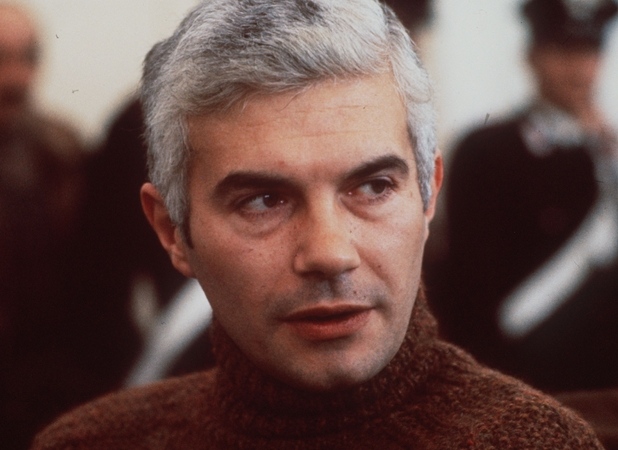The gridlock of the system, that seemed happen in Italy in the second half of the 1970s (the government called “national solidarity”), unleashed the protests of those who felt excluded and marginalized. “New needs” appeared with the “new revolutionary subjects” impossible to reduce to the worker’s struggle alone. The struggle against repression and marginalization transformed into a drastic confrontation that henceforth also welcomed the forces of the left against a “palace” (Palazzo). The expulsion of the secretary of the CGIL, Luciano Lama, from the University of Rome is the episode that traces new lines of deployment of forces and of conflict. In this phase, the radical right furnishes an interpretation of many analogous aspects of the radical left, even recovering, at least in part, instruments of analysis and keys to interpretation from the latter, to the point of arriving at the hypothesis of a strategic common line: the immediate common line is the same for both, the destruction of the bourgeois system.
The principal metapolitical point of reference of this analysis is the second of the Evolian political “grand texts,” Ride the Tiger, in the most radical of possible readings, that proposed at the end of the 1960s by Franco Freda. The principal concept of Ride the Tiger, that of apoliteia (1) [ch. VI], is susceptible to least two readings: the first, exclusively concentrated on the internal dimension, leads to a total abstention from all forms of political action; the second interprets apoliteia as a refusal to insert oneself into the political system of today, and thus to adhere to the components that create it (Anti-Tradition), and indicates an exasperated political engagement under form of a militia, “the heroic way,” “holy war” as the most valuable and most authentic instrument of spiritual realization.
That is thus the line suggested by Freda in the “manifesto” that was the most authoritative in the radical right (2). His point of departure is a virulent attack on the concept of Europe, that overthrows the entire political spiritual heritage of the modern West:
“Europe is an old hussy who has whored in all the brothels and has contracted all the ideological infections – since those of revolts of medieval communes to those of anti-imperial national monarchies; from Illuminism to Jacobinism, to Masonry, to Judaism, to Zionism, to liberalism, to Marxism. A whore, whose womb has conceived and engendered the bourgeois revolution and the proletarian revolt: whose soul was posseded by the violence of merchants and the rebellion of slaves. And us, right now, we would like to redeem it?” (The Disintegration of the System)
The result of this Europe is a world totally “other” regarding that of Tradition: it’s the bourgeois, capitalist world, dominated by economic authority and by the exploitation of man by man. The state itself is the political place reserved only to the bourgeoisie, whose unique function is the defense of the bourgeois economy (the debt towards the instruments of Marxist analysis is explicit and declared). To that he opposed the idea of the “true state” (vero Stato), as an absolute reality, values that transcend contingent historical realizations (the Evolian inspiration is evident here). This conception is the source of inspiration for the “popular state” proposed by Freda in an articulated and analytic project, whose only relative indications of external politics can be reprised here, by reasons of the consequences that they have on the general strategic choices (“the field of battle”) of the extreme right:
“The denunciation of the Atlantic Pact and its military organization, as the rupture of relations that link Italy today the neocapitalist structures (European Economic Community, etc…) must provoke the active insertion of the Popular State into the sphere of states that refuse to be snagged by the politics of imperialist blocs of power. The Popular State will establish alliances with all the authentically anti-capitalist states and favor on the international level, movements of struggle against capitalism and the revisionist accomplices.”
This type of affirmation, as the repeated declarations of sympathy for Chinese communism because of the sober, Spartan, warrior style that characterizes it (beside the anti-imperialist struggle) is at the base of the “Nazi-Maoist” formula by which they often characterize the theories of Freda. This constitutes the basis of one of the most important passages of the itinerary of Freda, the hypothesis of a solidarity with the left. It is not solely a theoretical hypothesis, but a veritable strategic proposition of “common struggle,” that Freda addresses “to those who radically refuse the system, lying beyond the traditional left, in the certainty that even with them we could realize a loyal unity of action against bourgeois society.” Well understood, they are foreign to metaphysical premises, they do not pursue the myth of the “true state,” the super-human, metapolitical, metahistorical directions of a superior “reality”: but in the temporal historical order, their objective is the same, the destruction of the bourgeois system. That’s why a coherent unity of action is to be inaugurated with all the forces engaged in the struggle for the elimination of the system, by repudiating legalist and reformist tactics, and “all guilty hesitation before the use of all the means, drastic and decisive, that only violence possesses.” (3)
Franco Ferraresi, extract from : « Les références théorico-doctrinales de la droite radicale en Italie », Mots n°12, 1986.
